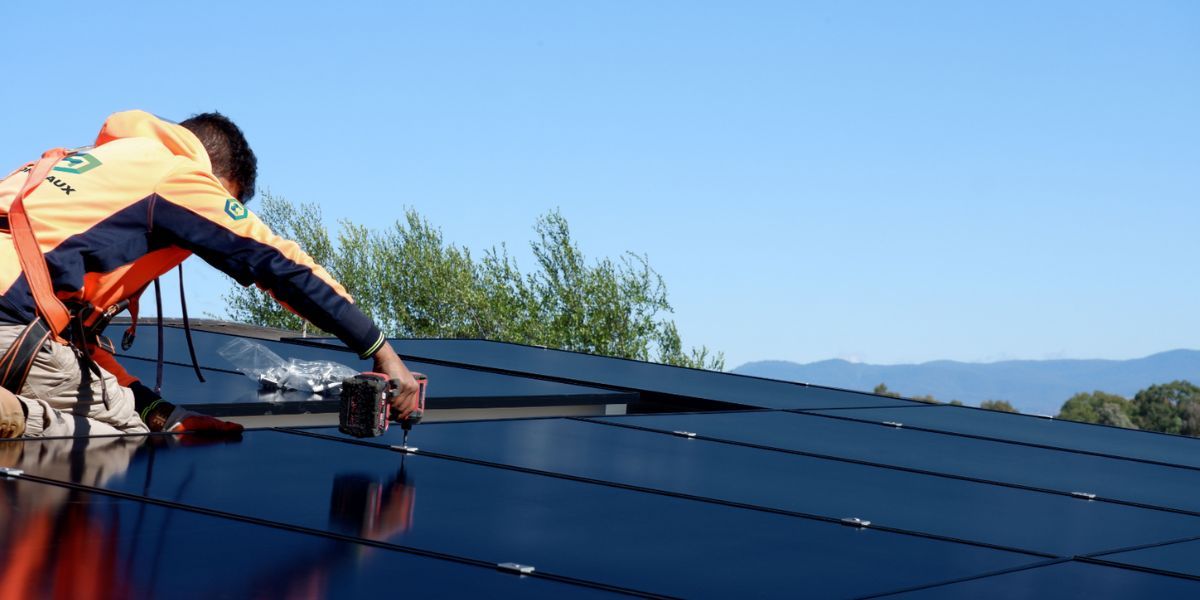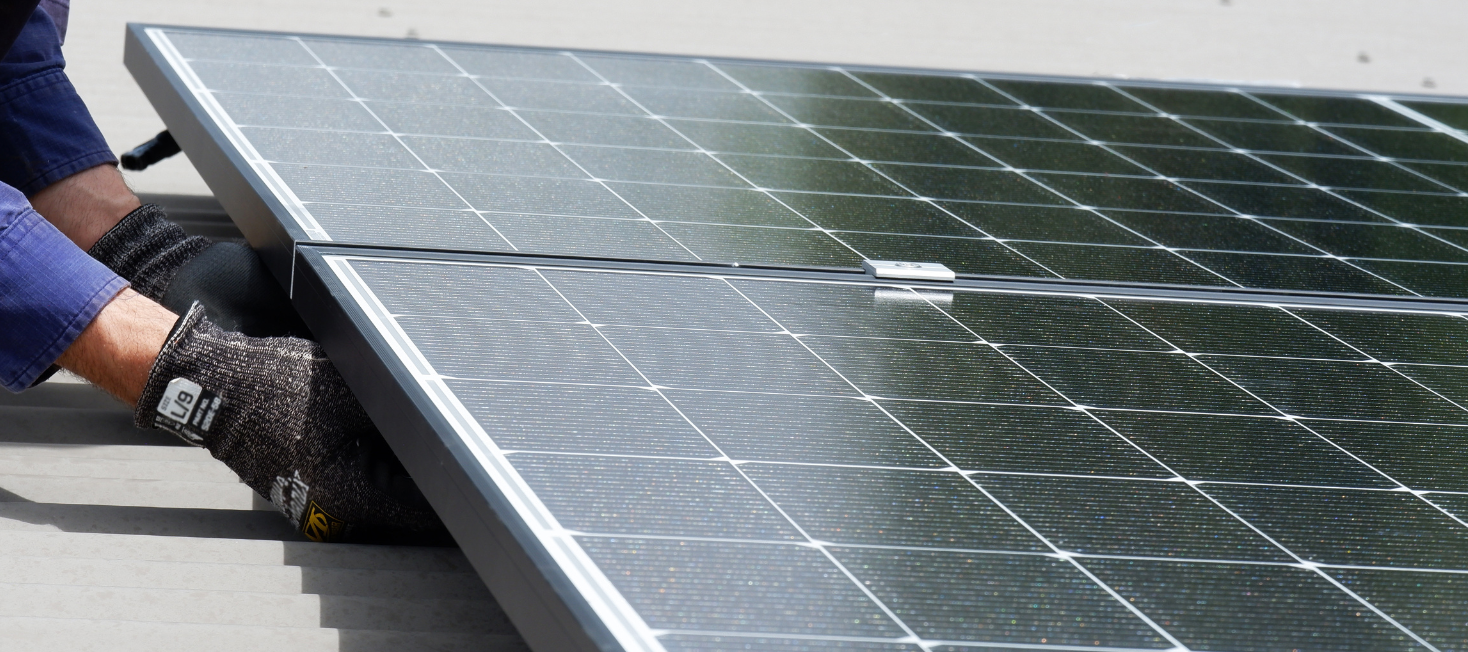Solar Batteries – Frequently Asked Questions
1. What does a battery storage system look like?
The size of a battery storage system depends on the commercial and household units in which it is installed. The battery storage system, which is primarily for households, is the size of a small refrigerator. Battery storage systems in business settings, on the other hand, can be rather substantial. Commercial solar batteries can be as big as a large refrigerator or a 20-foot shipping container.
2. How does a battery storage system work?
The chemical processes happening inside the battery aid in storing electrical energy. The electrical system then uses this energy to brighten the residential or business setting.
3. Are Solar Batteries Worth It?
Solar batteries are a fantastic complement to any solar power system. Batteries, on the other hand, usually have a more extended payback period. However, a battery-powered solar system can help you completely eliminate or drastically cut your electricity expenditures. It can also assist you in lighting your home during a blackout and reducing your carbon footprint. Read our previous blog, “Why solar batteries are a long-term investment?” to enlighten yourself regarding the benefits of solar batteries.
4. What is a battery “cycle”?
One cycle is defined as a full-power charge and discharge.
5. What are the benefits of battery storage?
In the solar sector, the battery is a fantastic breakthrough. It gives end-users additional control over the system. Many advantages are available to battery users, including increased energy savings. Being independent of the grid, especially during peak hours when grid rates are pretty high. Even during outages, the battery continues to function.
6. Is battery storage and a residential ESS (Energy Storage System) safe?
Yes, it has the potential to be safe, but it also has some risks, just like any other electrical system. Some precautions should be taken to keep hazards to a minimum. It is very important to find a reputable solar contractor who should install the system appropriately.
7. Can my solar battery be outside?
This is dependent on the system or technology that your battery employs; if you plan to install your battery outside the house. Please contact our battery experts to ask for advice.
8. What types of battery storage are available, and which is the best?
It is an important question to ask when buying a battery. However, lead-acid and lithium-ion batteries are the most frequent options. Nickel-cadmium, nickel-metal hydride, and flow batteries are some of the less popular alternatives. You can learn more about buying the best solar battery storage in our previous blog, “How to Buy the Best Solar Battery Storage?“.
9. Can I go off-grid?
The short answer is yes; however, there are some reasons we don’t recommend clients to do so. Bad weather reduces the supply, and the battery may not be able to meet your demand on cloudy days. Connecting to the grid will also allow you to sell any excess electricity to the grid.
10. How long will the solar backup batteries last?
The brand’s technology determines the lifespan of solar batteries. Solar batteries typically have a lifespan of 5 to 15 years. It means that the battery life is shorter than that of the solar panels. However, as the solar industry’s technology advances, the life of the panels and batteries is also increasing over time.
11. What is the most significant factor that impacts battery life?
The temperature has a considerable impact on the battery’s life. As a result, maintaining an appropriate enclosure to protect the batteries from overheating is critical. There should be adequate cooling to avoid overheating and adequate protection during periods of extreme cold. When the battery temperature falls below 30 degrees Fahrenheit, more voltage is required to charge the battery. When the battery temperature rises above 90 degrees Fahrenheit, however, the battery can overheat and require a charge reduction. Temperature moderation is a feature provided by battery manufacturers to address this issue. When purchasing a battery, finding a reputable manufacturer and installer is critical.
12. How long can a solar battery power my home?
It’s a thorny issue that is influenced by several things. It largely relies on your household or commercial consumption, the load your battery can handle, and whether you have a battery and grid or an all off-the-grid solution. Some additional factors can affect the battery’s performance and total life; if your usage exceeds the capacity of the battery, you may need more than one battery.
13. Can I run my house on solar battery backup power only?
Yes, you are capable of doing so, but it is not that easy. It requires a proper design, and it is dependent on your usage, photovoltaic generation, and the type of battery utilized.
14. How much would it cost to run on solar battery only?
Many factors determine the exact cost. These parameters include your energy consumption, battery manufacturer, solar energy system size, kind, as well as the quantity of daylight available. Read our blog “What determines the cost of a solar battery?” to know more about the factors that determine the cost of solar batteries. There are also government rebates available for people who want to go solar and install a battery system. Our experts can help you with getting the government rebates.
15. How do I size my battery system?
The battery systems are measured in kilowatt-hours (kWh) (kilowatt-hours). If the average home consumes 20kWh per day, you’ll need a system that can handle 30% of that during the day and 70% at night. As a result, 6kWh is used during the day, and 14kWh is used at night. As a result, you’ll need a battery that can provide 14kWh of nighttime usage on average.
16. When the grid goes down, will the batteries continue to work?
Yes, but only if the battery has an “islanding” capability. When your system has islanding capacity, it won’t send any electricity into the grid during a blackout, and all remaining power will go to your loads.
17. Can I be power bill free with a solar battery?
If the size of your solar battery and solar panels is right for your usage, you have the chance to lower your bill to zero or extremely low.
18. Can I monitor the solar battery?
Many solar battery installers will provide you with battery management software and apps that will help you to increase your power independence by monitoring the system yourself.
19. Can I add a battery to my existing solar system?
Yes, the system can be extended as long as meeting local electricity network requirements. And we can provide a solution. Contact us, and we will connect you with our experts who can help you with their expertise.
20. Can I increase my battery storage capacity in the future?
Yes, you may always upgrade your existing solar system’s battery capacity. However, you must determine whether your solar system is capable of charging this new battery or whether you require additional solar panels. You can learn the solution to this question by reading our blog, “The most crucial question: more solar panels or a battery?”.
21. What solar battery brands does Mondiaux Solar installs?
Mondiaux Solar is a professional installer. We provide a wide selection of batteries. We have the ability to install batteries from Sungrow, Huawei, Tesla, Alpha ESS, Selectronics system, Sonnen, and Pylontech.
Share Post





